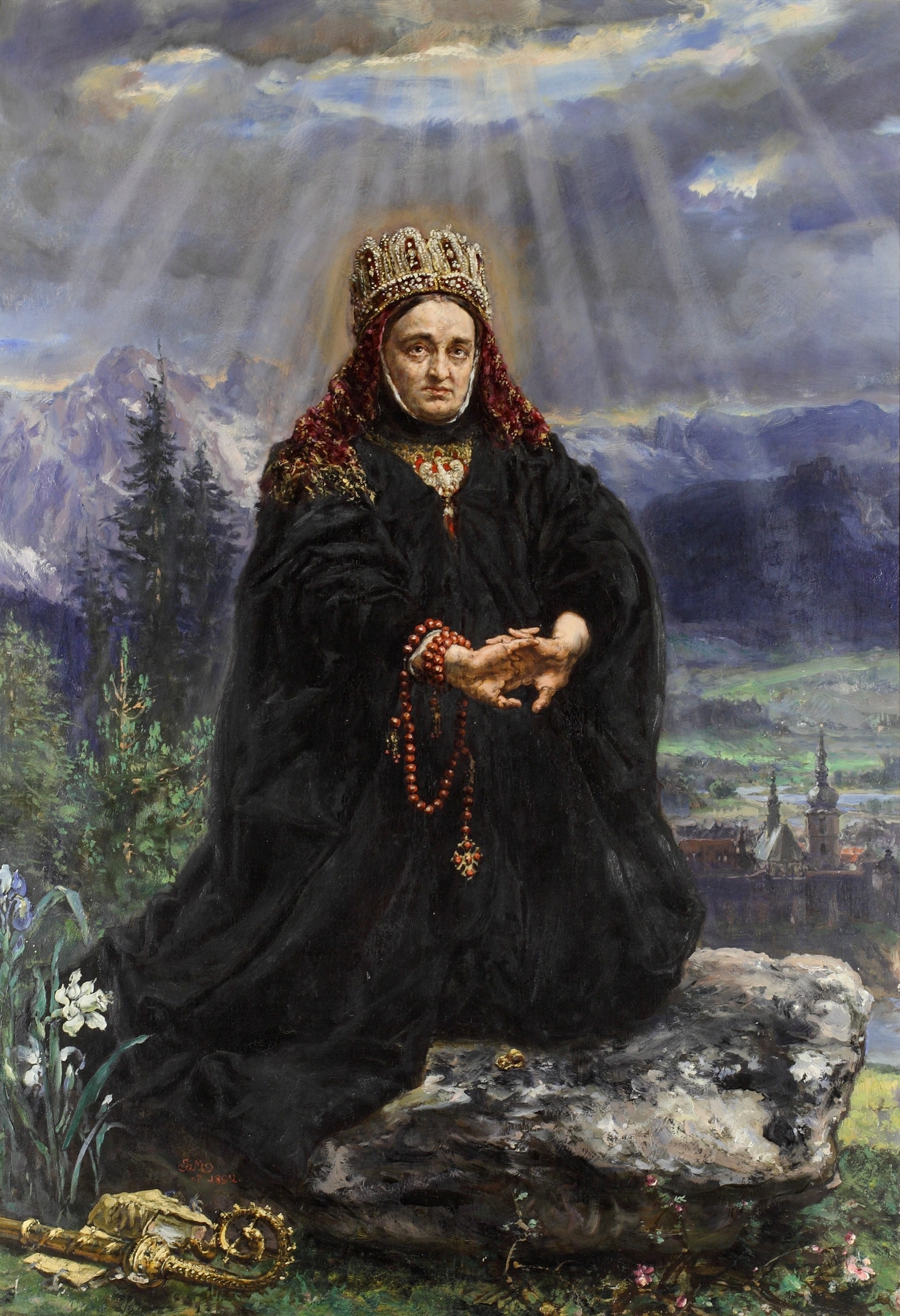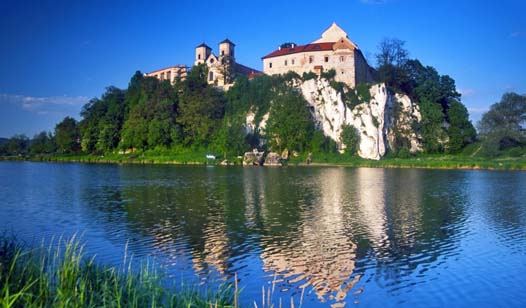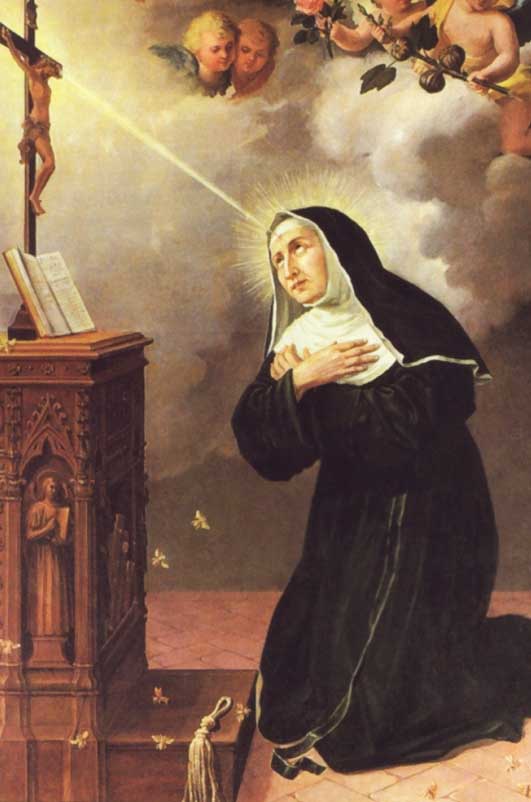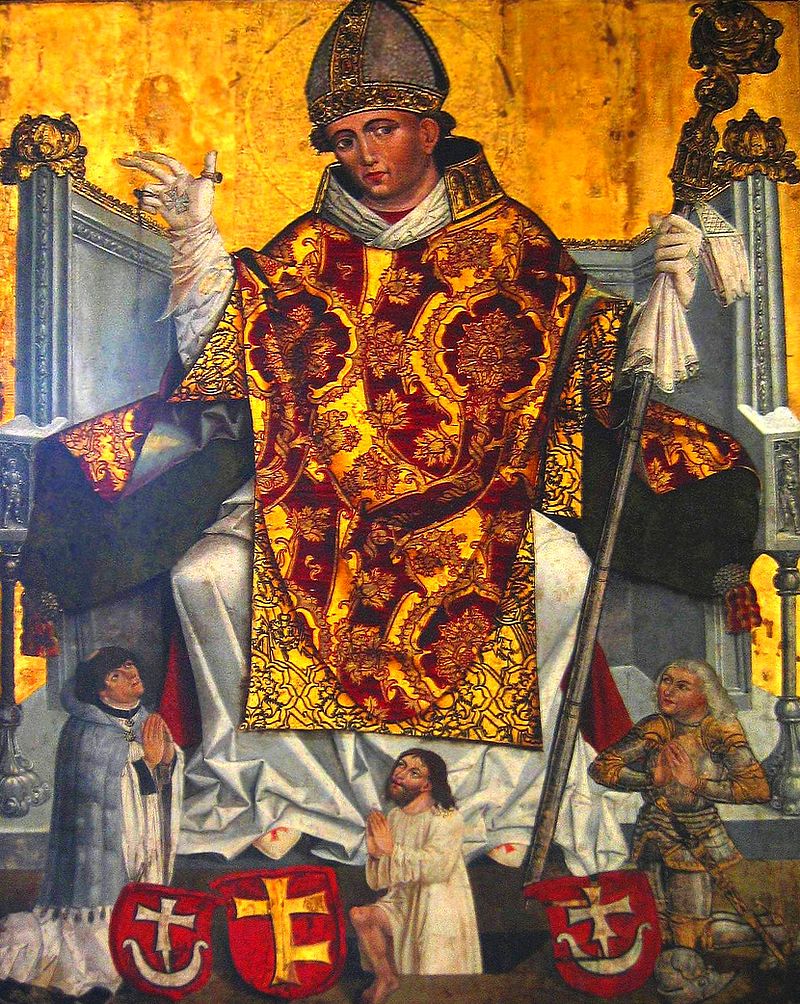 For the love of God above all (Bl. King)
For the love of God above all (Bl. King)
The 13th century was very turbulent and full of anxiety in Poland. Dukes ruled the country broken down into districts, who, in addition, often fought each other. Frequent plagues decimated the population. To make matters worse, from time to time the Tatars harassed our country with invasions. They burned down villages and towns, and the people were murdered or taken to Jasyr.
But at the same time, this age has produced many wonderful figures - people, who have gained holiness by working on themselves, controlling your own bad tendencies, by giving love to one's neighbor, and sometimes by martyrdom for the faith. That is why this age is often called in Poland "the century of saints". Because the people of that time were not content with mediocrity, peace, but they demanded many austerities and sacrifices for the cause of God, or for the good of others.
One of those beautiful characters, which, thanks to its virtues and virtues, played an important role in Polish religious life, former bl. King (1234-1292), wife of Bolesław the Chaste, of the Duke of Sandomierz and Krakow, and after his death, a nun at the convent of Poor Clares in Stary Sącz.
Picture of the life of Bl. Kinga emerges from behind many beautiful legends and tales, with which the Polish people surrounded her figure. Kinga was not of Polish origin ; was the daughter of the Hungarian king Bela IV. Various family plans have made, that as a child of several years she found herself on Polish soil. However, she still returned to Hungary, but after a few years she came again. According to her parents' will, she was to marry Bolesław, the Duke of Sandomierz and a little later of Krakow. Here, at the Piast court, She was brought up under the watchful eye of Grzymisława, mother of Bolesław. She learned the Polish language, which was particularly difficult for foreigners, and got to know the customs of the country, which became her second homeland.
From childhood, she was characterized by a love of virtue. She also made a vow to God, that she will live in eternal purity. She wanted to keep this promise faithfully. When she married Bolesław, because of this she had many difficulties, but she has successfully overcome all of them. After long pleas, Bolesław, who loved her very much, he fulfilled her desire and agreed to it, that they may live together as brother and sister. They even made a special vow of eternal chastity for this purpose. For this reason, historians gave Bolesław a nickname ,,Shy".
It is the love of purity by Bl. Kinga was connected with her personal composure, mortification and piety. Very often, especially during the period, when she tried to convince Bolesław of the value of the virtue of chastity, she spent nights in prayer. At that time, she lived in the castle in Nowy Korczyn. Well, it has happened more than once, that she went unnoticed to the church of St.. Nicholas, erected on the Nida River near the city, and there she prayed fervently. And the population, especially the poorest, she saw in her saintly Duchess a good and merciful Lady, always rushing to help those in need.
But this life in the Krakow and New Korczyński castles was interrupted by terrible disasters, related to the invasions of the Tatars. She divided Bl. Kinga will be wandering. She sought refuge in the mountains and in Hungary, and folk tradition has wrapped these escapes in rich legends. In these difficult times, Bl. Kinga earmarked the treasures of her dowry for defense, and then to rebuild the devastated country. For this it received the land of Nowy Sącz. She later equipped this land with the convent of Poor Clares, which she ordered to build in Stary Sącz.
In the mid-thirteenth century. salt mining began in Bochnia and Wieliczka. Tradition rightly linked this event with the figure of Bl. Kingi. Over time, there was a legend about this about a ring thrown by Kinga into a salt mine and the discovery of this ring in a lump of salt unearthed on Polish soil. Since then, salt has become one of the main riches of Poland.
After the death of her husband, Bl. Kinga began the second period of her life (1279 r.). It was then that she went to the convent of Poor Clares that she founded in Stary Sącz. There, in the habit of a modest nun, she spent the next years of her life until her death. In the convent, she was a model of virtue for others, especially humility, love of neighbor and godliness. It fulfilled them all, even the simplest activities and ministries of an ordinary nun. She also tried to help other sisters. In the convent, too, she had to endure many humiliations and unpleasantries. They came from the unjust accusations of malicious people. It also cost her a lot to defend the monastery and its property - the land of Nowy Sącz, which some princes wanted to seize, especially Leszko the Black. Her strength was always sincere and long-lasting prayer.
Bl. Kinga also took care of the development of Polish culture and language. Because she recommended, that psalms would be translated into Polish for nuns and for herself, excerpts from Scripture. and various prayers. These texts did, that Polish chants resounded more often than elsewhere in the monastery in Stary Sącz. And today they are among the oldest monuments of the Polish language. The monastic tradition tells, that bl. Kinga also showed great patience in her last illness, which was the cause of her death on 24 July 1292 r. Her body was buried in the chapel of the convent of Poor Clares in Stary Sącz. Today, you can see her relics there, placed in rich reliquaries.
Soon after the death of Bl. Kinga's grave became famous for its extraordinary graces, that people received from God through her. Therefore, over the centuries, numerous pilgrims made their way to Stary Sącz, looking there at the grave of the Lady of the Sądecki Land” help in their misfortunes. Bl, Kinga was raised to the altars by the act of beatification of St. 1690 r. The people of Podhale and Sądecczyzna are the first to honor this Blessed, and salt miners. In the Pieniny, at the top of Góra Zamkowa, a grotto with its stone figure was built, and in Bochnia and Wieliczka, miners carved underground chapels dedicated to its honor in salt. Feast of Bl. Kinga is celebrated 24 July.
Worshipers of Bl. Kinga asked and asked for many favors through her intercession. They turned to her for intercession especially then, when the homeland, she loved so much, she was in danger. Many of our compatriots learned from her to live a life of sacrifice, union with God through prayer, and most of all difficult, but the beautiful virtue of chastity. They found a model of such an attitude when they looked at the life of the duchess and the nun at the same time, bl. Kingi.
We invite you to read: St.. Kingi








On the first day of the novena to Saint Kinga, I am asking for her intercession to the Merciful God for the miraculous healing of my husband Gerald,wound healing,faith,hope,strength and patience and a blessing in the 6th year of our marriage